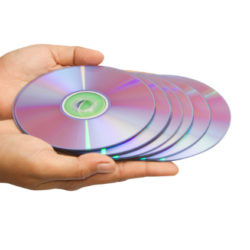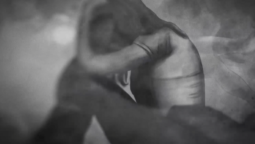It’s important to understand that the role of any A&R rep is to find and release most compelling music they can get their hands on. The music a label releases needs to match their vision stylistically and ultimately needs to sell. It is in fact, every label’s A&R mission to scour the earth for such music, nurture it and get it out to as wide an audience as possible. A good label will believe in their music enough that they’re willing to put massive effort and a lot of money into getting this music heard, with the knowledge that once their audience hears this music, they will want to buy it. Finding music that meets these criteria is not easy, but if a label fails to do this, their releases will fail to turn a profit and they will not succeed as a business.
So, if your goal is to build a career as an artist and performer, it would make sense then to send your music to a label that is doing it right: a label that will not only release your music, but will make the effort and spend the money to ensure that the world is hearing your music.
The Challenge
 A popular misconception that new artists have is that their demos will not be heard if they send their music to the “biggest” labels within their genre. The thinking goes that theoretically these “big” labels employ shady A&R buffs who toss demo tapes into the garbage bin the moment they arrive, because they have much bigger fish to fry.
A popular misconception that new artists have is that their demos will not be heard if they send their music to the “biggest” labels within their genre. The thinking goes that theoretically these “big” labels employ shady A&R buffs who toss demo tapes into the garbage bin the moment they arrive, because they have much bigger fish to fry.
If this were the case, then what would be the point of ever sending your music to one of these “big successful” labels? You might as well just send your tracks to your buddy in San Francisco who runs this little boutique underground imprint. He can’t give you an advance, but he’ll gladly pay $500 to have “DJ Semi-Popular” remix it because his name will help sell the release. Don’t get me wrong, your friend’s label is pretty good. Their last release topped out at #65 on the Traxsource Tech-House charts and Beatport featured it under their “Featured Releases” section. Not to mention, Richie Hawtin gave that record some amazing feedback. He said “downloaded for r. hawtin.” Not bad, right?
“If only I could somehow make friends with the label owner,” you’re thinking. “Maybe then they’ll give my song a closer listen.”
Maybe if you pay the label a visit and just get a face-to-face meeting with this busy A&R rep, you can explain your struggle. Then maybe he’ll listen to your tracks.
Luckily this is not always the case. The dance music industry thrives on fresh new talent and even the “biggest” record labels need emerging artists more than they need to amass an entire catalog of household names. So then the big question is, how do you do it? How do you get your song heard? Do you email them? Should you send a Soundcloud link? Mail a CD? And after you submit your songs, do you need to follow up? How long do you wait?
Two Different Approaches
Unfortunately the answers to these questions may not be as straightforward as you’d like. Every label handles A&R differently, but if you are serious about your attempt to release music on your favorite record label, it makes sense to research the label. Visit their web site, and find out if they have a demo submission process. Interested in releasing records on Toolroom? Your chances will be better if you submit music through their website on their demo submission page, than if you cyberstalk Mark Knight or hand him your CDR while he is on stage.
 Likewise, Dirty Bird Records boss Claude Von Stroke says: “We have a demo link on our site and I really prefer it gets used, otherwise there is almost no way to regulate when your stuff gets heard. Direct emails to me are a nightmare because I literally just download the demo folder every two weeks and listen to them all in one sitting, so a direct email to me is actually a great way to NOT get your track heard. I choose everything 100% myself and I listen to every (properly submitted) demo. Sometimes it can take up to 4 weeks to get a response.”
Likewise, Dirty Bird Records boss Claude Von Stroke says: “We have a demo link on our site and I really prefer it gets used, otherwise there is almost no way to regulate when your stuff gets heard. Direct emails to me are a nightmare because I literally just download the demo folder every two weeks and listen to them all in one sitting, so a direct email to me is actually a great way to NOT get your track heard. I choose everything 100% myself and I listen to every (properly submitted) demo. Sometimes it can take up to 4 weeks to get a response.”
However some labels may not have such rigid demo submission guidelines. Visionquest co-founder Ryan Crosson takes a completely different, and much more personal approach: “Our A&R process really isn’t written in stone. For the first two years we really weren’t getting many demos sent via our demo email, but more in passing through friends, or friends of friends. We were fortunate enough to be already hanging out with people whose music we enjoyed and also hanging out with people who turned us on to some really special newcomers i.e. Laura Jones, Tale of Us, Clarian, etc. Eventually the demos email took off and we were able to start discovering new talents via that medium, although we still prefer to get a CD in hand so we can speak to people and if possible interact throughout the course of an evening with someone to see if our personalities and tastes click.”
The TL;DR
In short, if you believe your music is at least worth a listen by your favorite label, go for it. Make it known. The label is looking for you. However, understanding and following the label’s demo process (if any) will ensure that your music actually gets heard and considered for release by the label’s A&R team.







Join the discussion
comments powered by Disqus